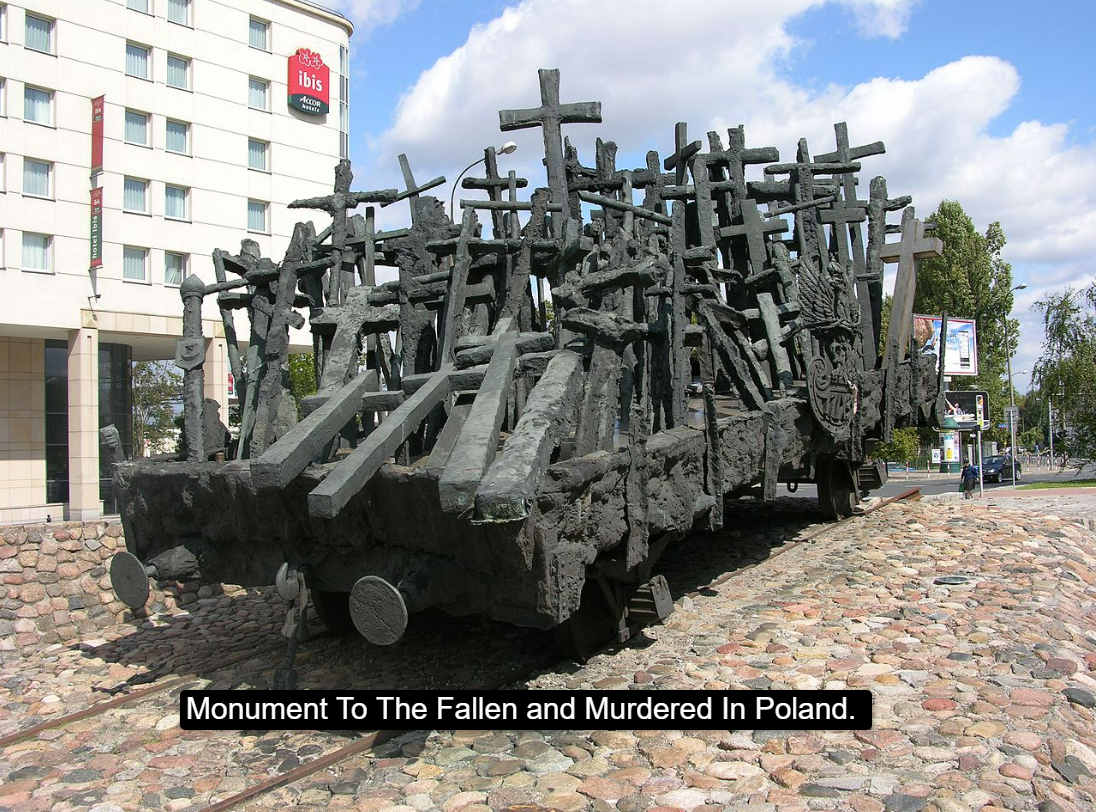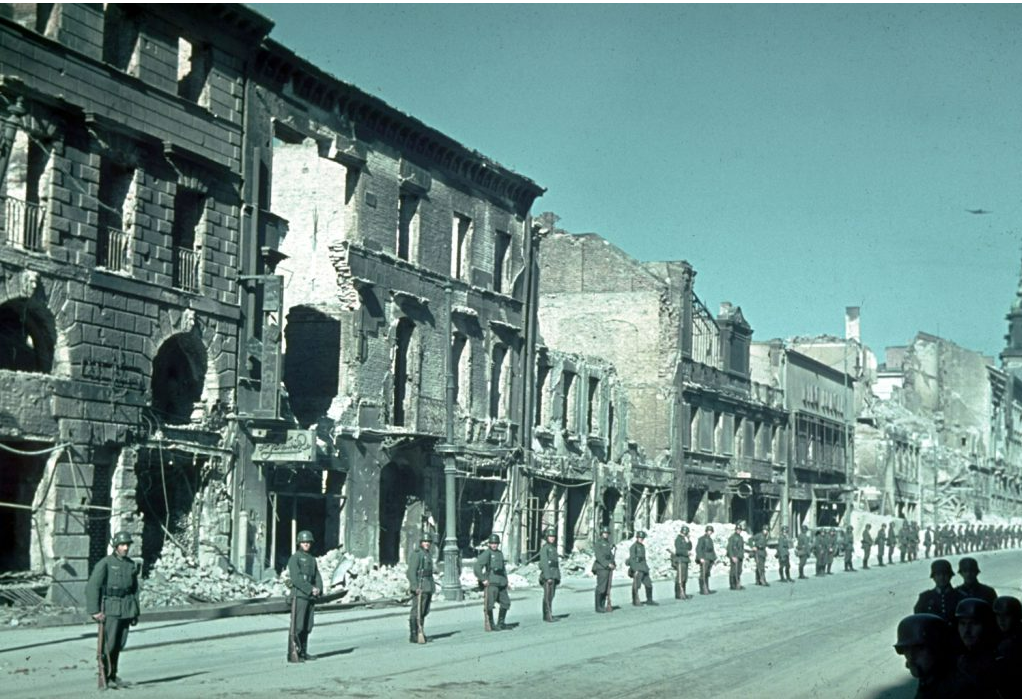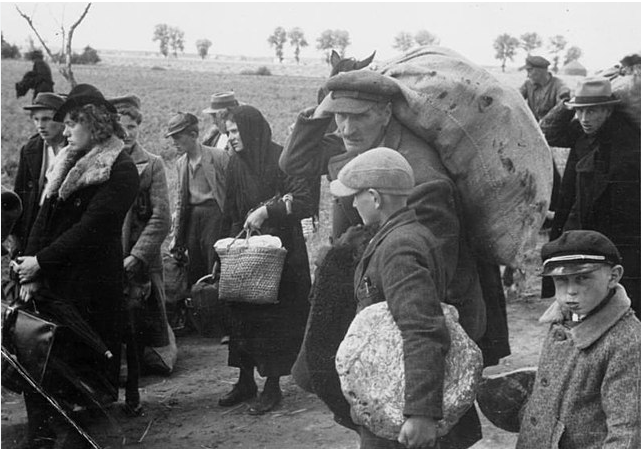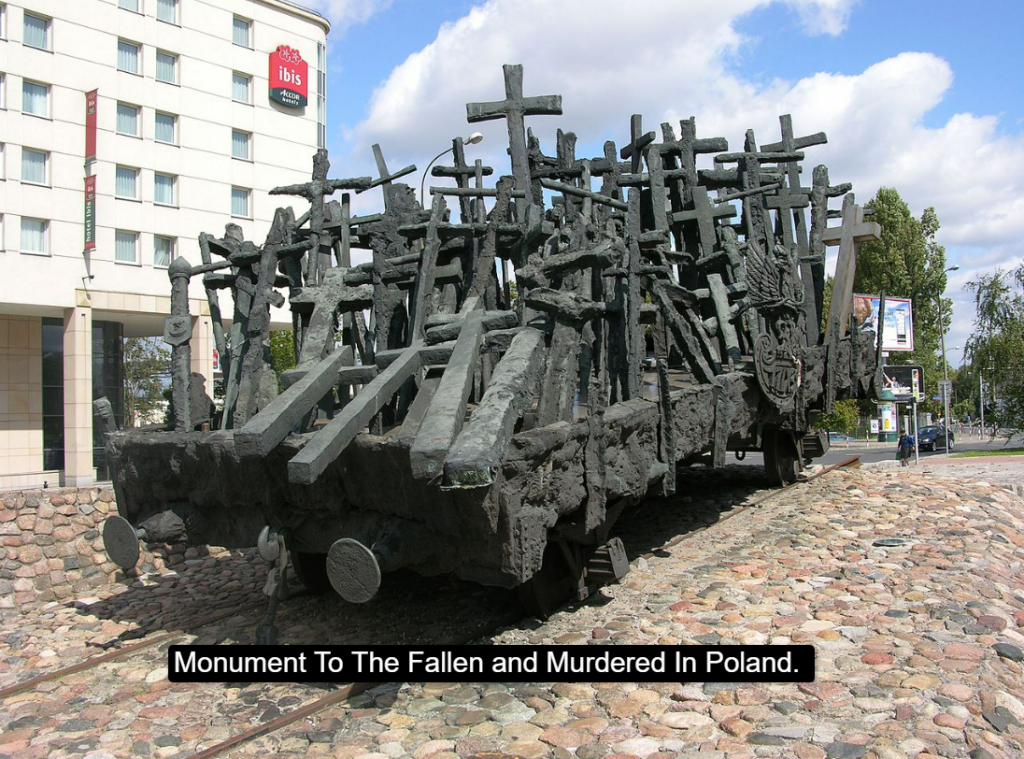Physical Address
304 North Cardinal St.
Dorchester Center, MA 02124
Physical Address
304 North Cardinal St.
Dorchester Center, MA 02124

In the tumultuous landscape of the 20th century, few events have resonated with as much impact and lasting consequences as the start of World War II. It was a conflict that engulfed the entire globe and claimed the lives of millions. At the heart of this catastrophic conflict was the German invasion of Poland, an event that marked the beginning of a war that would change the course of history. But why did the Nazi invasion of Poland precisely initiate such a wide-scale and devastating global conflict? In this article, we will delve into the crucial factors and intricate circumstances that led to this momentous event and explore the implications it had on the world. By examining the political intricacies, historical context, and underlying motives, we hope to better understand the significance of the German invasion of Poland in starting World War II.
The Nazi invasion of Poland is widely regarded as the event that sparked the beginning of World War II. But why did the invasion happen in the first place? To truly understand the prelude to the invasion, we need to delve into the political landscape of Europe during the 1930s.
Adolf Hitler’s rise to power in Germany in 1933 marked the beginning of a new era filled with nationalist and expansionist ambitions. Hitler’s ultimate goal was to expand German territory and create an empire known as the Third Reich. He needed to secure a stronger foothold in Eastern Europe to achieve this.
Poland, strategically located between Germany and the Soviet Union, became a prime target for Hitler’s territorial ambitions. The Polish Corridor, a strip of land separating East Prussia from the rest of Germany, was a constant source of tension between the two nations. Hitler saw the reclaiming of this territory as necessary for the expansion of the German empire.
Furthermore, as tensions rose in Europe, Hitler sought to test the international community’s response to German aggression. He believed that Britain and France, bound by treaties to protect Poland, would not intervene effectively in the event of an invasion. Hitler’s calculated gamble paid off when the international response fell short of his expectations, encouraging him to proceed with his plans.
In conclusion, the Nazi invasion of Poland marked the beginning of World War II due to Hitler’s expansionist ambitions, the strategic importance of Poland, and the miscalculated response of the international community. Understanding the prelude to the invasion requires a deep comprehension of the political climate and the motivations driving Hitler’s actions. It serves as a reminder of the consequences that can arise when aggression, nationalism, and failure to respond forcefully are allowed to go unchecked.
The outbreak of World War II was a complex and multifaceted event, with numerous key players and agendas contributing to the conflict. One of the pivotal moments that ignited the war was the Nazi invasion of Poland in 1939. The invasion marked the beginning of Hitler’s aggressive territorial expansion and revealed the true intentions of the Nazi regime.
Why did the Nazi invasion of Poland start World War II? At its core, Hitler’s actions were driven by a combination of political, ideological, and strategic motives. The Nazis sought to establish a greater German empire and to realize their vision of a racially pure Aryan state. Moreover, Hitler believed that Poland, with its valuable resources and strategic location, was crucial for Germany’s long-term dominance in Europe.
However, the Nazi invasion of Poland did not happen in isolation. It was influenced by geopolitical factors and shifting alliances. The signing of the Molotov-Ribbentrop Pact between Germany and the Soviet Union in 1939 played a significant role, as it ensured that Hitler could initiate his military campaign without the fear of a two-front war. The pact also contained secret protocols that divided Eastern Europe into spheres of influence for both countries.
Additionally, the response of the international community to the Nazi aggression must be taken into account. Many countries, hesitant to engage in another devastating war after the Great War, initially adopted a policy of appeasement towards Hitler’s expansionist ambitions. This approach only emboldened the Nazi regime and allowed them to continue their aggressive actions.
In conclusion, the Nazi invasion of Poland was a critical event that triggered the outbreak of World War II. Hitler’s desire for territorial expansion, combined with the geopolitical landscape and the international community’s response, created a volatile mix that led to the conflict. It serves as a stark reminder of the dangers of appeasement and the need for strong international alliances to prevent the escalation of aggression and the devastation that war brings.
Military strategies and tactics have played a crucial role in shaping the outcomes of wars throughout history. One of the most infamous examples of military strategy leading to a global conflict was the Nazi invasion of Poland, which served as the catalyst for the start of World War II. But why did this invasion occur and what were the strategies behind it?
The Nazi invasion of Poland in 1939 marked a significant turning point in history. Adolf Hitler’s primary goal was to establish living space, or “Lebensraum,” for the German people. However, the invasion was not only driven by territorial ambitions but also by Hitler’s desire to eliminate perceived threats and consolidate power. By invading Poland, the Nazis aimed to assert dominance and pave the way for further expansion in Europe.
Military strategies employed by the Nazis during the invasion included the element of surprise, known as the “Blitzkrieg” or lightning war. This strategy involved rapid and coordinated attacks, combining air strikes with ground forces, to quickly overwhelm the enemy. The German forces utilized superior firepower, along with the element of psychological warfare, to instill fear and confusion among the Polish defenders. This strategic approach allowed the Nazis to swiftly conquer Poland, despite their initial lack of numerical superiority.
The invasion of Poland not only showcased the effectiveness of Nazi military strategies, but it also revealed the diplomatic failures of the international community. The lack of a united response to the aggression ultimately emboldened Hitler and set the stage for further Nazi expansion, leading to the outbreak of World War II. This tragic chapter in history serves as a stark reminder of the importance of understanding and analysing military strategies and tactics to prevent similar conflicts in the future.

The impact of the Nazi invasion on Polish society and culture cannot be understated. It not only marked the beginning of World War II, but it also brought about immense suffering and devastation for the Polish people. The invasion, which started on September 1, 1939, was a blatant violation of Poland’s sovereignty and ignited a conflict that would engulf the world for the next six years.
Understanding why the Nazi invasion of Poland sparked World War II requires exploring the broader context of Europe at the time. Adolf Hitler, the leader of Nazi Germany, sought to expand German territory and establish a dominant Aryan empire. Poland, with its strategic location and resources, was a prime target. Hitler justified the invasion by citing fabricated instances of Polish aggression, such as the staged attack on a German radio station near the border.
The consequences of this invasion were felt deeply by the Polish people. The country became a battleground, experiencing heavy bombings, massacres, and forced deportations. The Nazis implemented a policy of ethnic cleansing, targeting Polish Jews, intellectuals, and resistance fighters. Countless lives were lost, and cultural heritage was destroyed. The Polish society and culture were irrevocably transformed, as people had to cope with the trauma of war and the loss of loved ones.
Despite the brutal occupation, the Polish people demonstrated tremendous resilience and resistance against the Nazis. Underground movements, such as the Home Army, fought to liberate their country and protect their cultural identity. Polish intellectuals continued their work clandestinely, preserving their language, literature, and arts. These acts of defiance and cultural preservation embody the spirit of the Polish people and their determination to rebuild their society in the aftermath of the war.
In conclusion, the Nazi invasion of Poland was a pivotal moment in history that had far-reaching consequences for Polish society and culture. It triggered the beginning of World War II and led to immense suffering and loss of life. However, it also showcased the resilience and determination of the Polish people to preserve their identity and rebuild their nation. Remembering this chapter in history is crucial to honor the victims and ensure that such atrocities are never repeated.

The Nazi invasion of Poland is widely regarded as the event that sparked the beginning of World War II, but the reasons behind it are complex. Understanding the international response and the ensuing diplomatic fallout is crucial to unraveling the events that led to this devastating global conflict.
The invasion of Poland by Nazi Germany on September 1, 1939, was a blatant violation of international law and agreements. This act of aggression shocked the international community as it exposed Hitler’s true intentions and shattered any hopes for peace in Europe. The response from other nations varied, but it was largely one of condemnation and concern.
The diplomatic fallout from the invasion was immense. Great Britain and France, who had guaranteed the security of Poland, declared war on Germany soon after. This marked the beginning of World War II and set the stage for a series of military campaigns and alliances that would engulf the world. The invasion of Poland was a turning point in diplomacy, as the failure to prevent this act of aggression highlighted the inadequacy of international efforts to maintain peace and security.
In conclusion, the Nazi invasion of Poland in 1939 is widely acknowledged as the catalyst for the start of World War II. The international response to this aggression varied, but it ultimately led to a diplomatic fallout that resulted in widespread conflict. Understanding the reasons behind the invasion and its impact on international relations is vital in comprehending the magnitude of events that unfolded during this dark chapter in history.
The Nazi invasion of Poland in 1939 marked the beginning of World War II, setting into motion a series of devastating events that would shape history. However, amidst discussions surrounding strategy, politics, and military advances, it is crucial never to overlook the human costs and losses that occurred during this traumatic period.
The invasion of Poland resulted in unimaginable suffering and loss for the Polish people. Innocent civilians were caught in the crossfire, enduring bombings, displacement, and mass killings. Families were torn apart, homes destroyed, and lives shattered. The horror of war unfolded on the streets of Poland, as communities were uprooted and forced into a life of uncertainty and fear.
So, why did the Nazi invasion of Poland start World War II? It is widely acknowledged that Hitler aimed to assert German dominance and expand their territory. The invasion of Poland was a blatant violation of international law, an act of aggression that would not be tolerated by other world powers. Hitler’s actions ignited a global conflict, drawing countries worldwide into a war they desperately tried to avoid.
The war that ensued following the invasion of Poland was not just fought on battlefields but also within the hearts and minds of the people it affected. Millions of lives were lost, dreams shattered, and futures extinguished. It is essential to remember and honor the countless human sacrifices made during this dark chapter in history, as we strive to learn from the past and build a better future.

The invasion of Poland by Nazi Germany in September 1939 marked the beginning of World War II. This aggressive act of aggression not only led to the subsequent global conflict but also had a significant and lasting impact on the course of modern history. Understanding why the Nazi invasion of Poland started World War II is crucial in comprehending the legacy it left behind.
At the heart of the invasion was Adolf Hitler’s desire to expand German territory and establish living space, or “lebensraum,” for the Aryan race. However, it was not only territorial ambitions that prompted Hitler’s aggression. The invasion also aimed to test the international community’s response, thus revealing weaknesses and ineffectiveness. By invading Poland, Hitler sought to gauge the reactions of major powers like France and Britain, who had signed treaties with Poland guaranteeing its territorial integrity.
The invasion of Poland set in motion a chain of events that ultimately plunged the world into a devastating global war. It highlighted the ineptitude of collective security systems and exposed the divisions and inadequacies of international diplomacy. The failure of the League of Nations to effectively respond to this act of aggression signified the erosion of its authority and influence. The invasion also highlighted the brutal nature of Nazi Germany, setting a precedent for the subsequent atrocities and war crimes committed throughout the conflict.
The legacy of the invasion of Poland is manifold. It underscored the importance of collective security and led to the formation of alliances such as the Allies and the Axis powers. The war that followed led to the collapse of empires, the redrawing of borders, and the emergence of two superpowers, the United States and the Soviet Union. Additionally, the invasion of Poland served as a stark reminder of the consequences of appeasement and the need for strong international institutions to prevent future conflicts. Most importantly, it led to a reevaluation of national sovereignty and the recognition of the need for a rules-based international order.
In conclusion, the invasion of Poland by Nazi Germany in 1939 was a pivotal moment in modern history. It initiated World War II and revealed the shortcomings of the international community. The legacy it left behind encompasses the collapse of empires, the rise of new global powers, and the establishment of international institutions aimed at preventing future conflicts. Understanding the reasons behind the Nazi invasion of Poland is crucial in comprehending its profound impact on the course of history.
The tragic events of 1939 marked a turning point in history and shaped the course of the world for years to come. One of the most significant questions that arise from this period is, “Why did the Nazi invasion of Poland start World War II?” Understanding the reasons behind this catastrophic event holds valuable lessons for us today.
The Nazi invasion of Poland can be attributed to a culmination of factors. Hitler’s expansionist ambitions, fueled by his twisted ideology of racial superiority, played a pivotal role. The concept of lebensraum, or living space for the German people, drove him to annex territories and dominate Europe. Additionally, the signing of the Molotov-Ribbentrop Pact, a non-aggression agreement between Germany and the Soviet Union, solidified Hitler’s plans to invade Poland without the threat of a two-front war.
Critical lessons can be drawn from this dark chapter in history. Firstly, we must remain vigilant against the dangers of unchecked aggression and totalitarian ideologies. The rise of extremist ideals and the dehumanization of certain groups led to unimaginable suffering and loss of life. Remembering these atrocities serves as a reminder of the importance of upholding human rights and equality.
Secondly, it highlights the importance of diplomatic negotiations and multilateral dialogue to prevent conflict. The failure of diplomacy before the invasion of Poland underscored the dire consequences that arise when diplomatic efforts flounder. Diplomacy serves as a powerful tool to resolve disputes and foster peaceful resolutions, and its value should never be underestimated.
Lastly, the events of 1939 remind us of the necessity of a collective response to aggression. The invasion of Poland triggered a domino effect, drawing other nations into a devastating global conflict. It serves as a cautionary tale, emphasizing the need for international cooperation and the establishment of alliances to deter aggression and maintain peace.
Reflecting on the lessons learned from the tragic events of 1939 allows us to better navigate the complexities of our world. By understanding the reasons behind the Nazi invasion of Poland and the subsequent outbreak of World War II, we can strive to prevent such horrors from recurring. Let history guide us in building a better future for generations to come.
Commemorating the Victims of the Invasion
As we reflect on the devastating consequences of World War II, it is essential to remember the victims of the invasion that sparked this global conflict. The Nazi invasion of Poland in September 1939 marked the beginning of one of the darkest chapters in human history. This ruthless act of aggression not only shattered Poland’s sovereignty but also served as a catalyst for World War II. Understanding why the Nazi invasion of Poland started the war is crucial for comprehending the magnitude of the suffering endured by its victims.
The invasion of Poland by Nazi Germany was driven by Adolf Hitler’s desire to expand the German Reich and pursue his aggressive ambitions. This act violated international law and the sovereignty of a nation that posed no immediate threat. Hitler’s expansionist policies, driven by his belief in Aryan superiority, prompted him to annex territories and establish German dominance throughout Europe.
Furthermore, the Nazi invasion of Poland was met with a significant response from the Allied nations. Britain and France declared war on Germany just days after the invasion, demonstrating their commitment to defending the principles of freedom and sovereignty. The conflict that ensued resulted in countless lives lost, as well as immense suffering and destruction across Europe.
Commemorating the victims of the invasion is our duty as a global community. By recognizing the atrocities committed during World War II, we ensure that the experiences of those who suffered are not forgotten. This remembrance serves as a reminder of the importance of unity, peace, and protecting the rights of individuals and nations.
In conclusion, the Nazi invasion of Poland initiated the catastrophic events of World War II, leading to the loss of millions of lives and unimaginable destruction. Understanding the reasons behind this invasion helps shed light on the magnitude of the suffering endured by its victims. Commemorating those affected by this invasion not only honors their memory but also reminds us of the importance of upholding the principles of peace, sovereignty, and freedom for future generations.
The Nazi invasion of Poland in 1939 marked the beginning of one of the darkest periods in human history – World War II. Understanding the reasons behind this invasion is crucial to comprehending the subsequent consequences of global politics. The primary motive for this aggression can be traced back to Adolf Hitler’s ambition to expand German territory and fulfill his vision of a Third Reich. However, the invasion of Poland was not just a territorial conquest; it shattered the fragile peace established after World War I and set off a chain of events that dramatically reshaped the world order.
The invasion of Poland exposed the weaknesses of the international system and the failure of diplomatic efforts to prevent conflict. The world watched in shock as Nazi forces rapidly overran the country, revealing the futility of appeasement and diplomacy as effective tools against aggression. This act of aggression sent a clear message to other totalitarian regimes that territorial expansion through force was possible without facing severe consequences. As a result, it emboldened Hitler and paved the way for subsequent invasions, leading to the wider conflict and global devastation that followed.
Moreover, the Nazi invasion of Poland deeply affected the power dynamics in Europe and eventually engulfed the world in a global conflict. The invasion led to the formation of alliances such as the Allies and the Axis, drawing nations into opposing sides and escalating tensions. It prompted a realignment of forces and strategies, as countries sought to counter the growing threat posed by the Axis powers. The war that unfolded profoundly transformed global politics, shaping the post-war world and giving rise to the United Nations and the Cold War.
Looking ahead, the consequences of the Nazi invasion of Poland remain ingrained in the collective memory of the international community. It serves as a stark reminder of the dangers of unchecked aggression and the importance of upholding international law and cooperation. The invasion highlighted the need for stronger mechanisms to resolve conflicts peacefully and prevent the recurrence of such devastating global conflicts. The lessons learned from this horrific period continue to influence contemporary global politics and underscore the imperative of fostering a world order based on peace, justice, and respect for human rights.